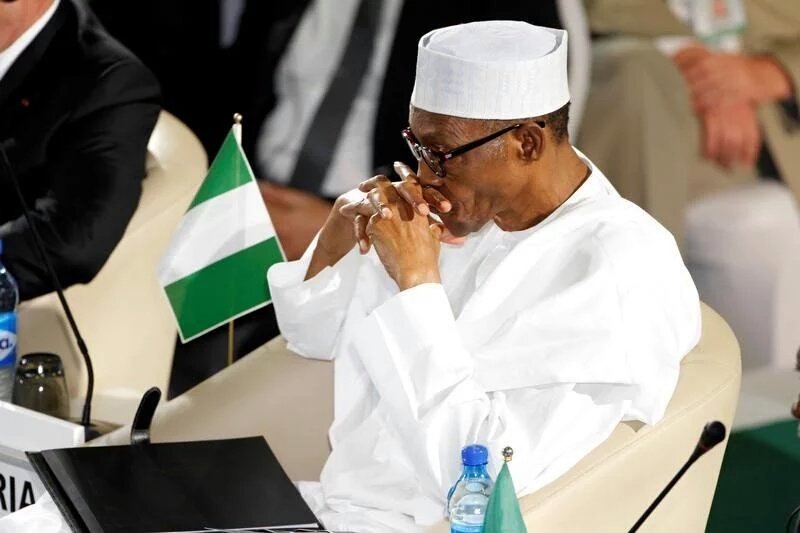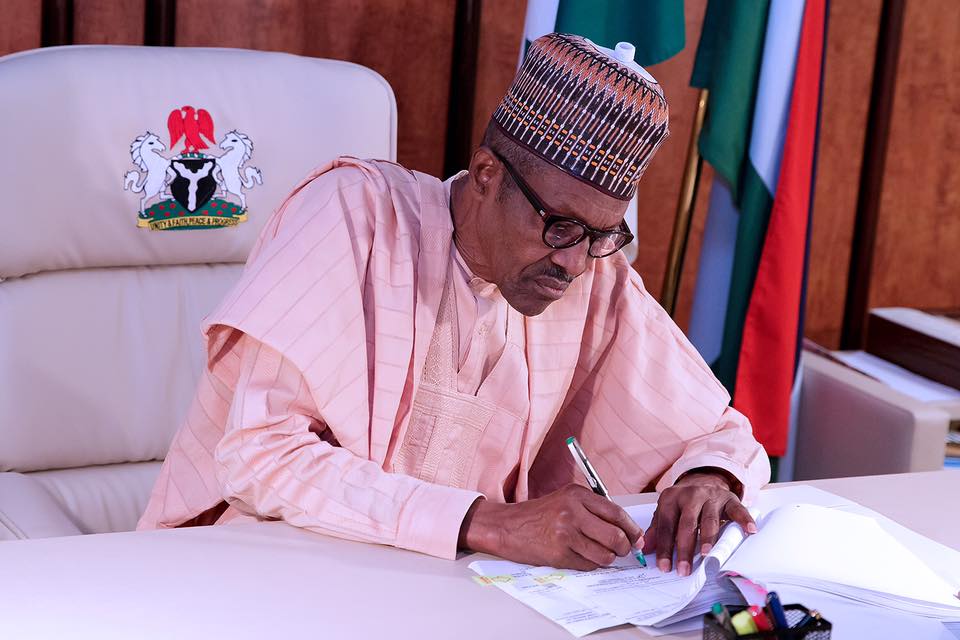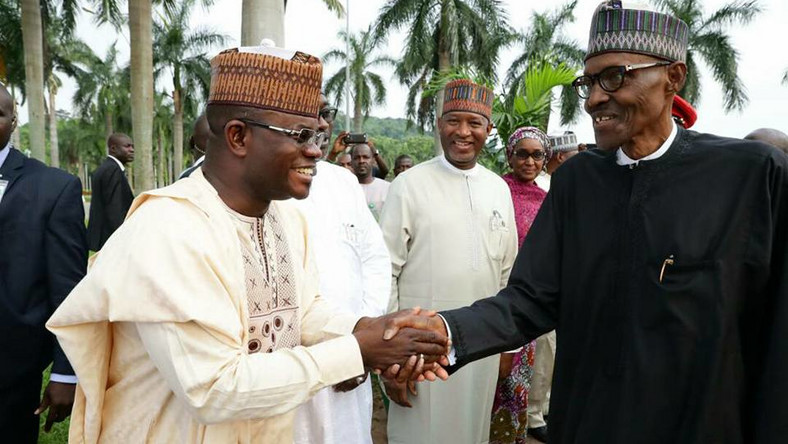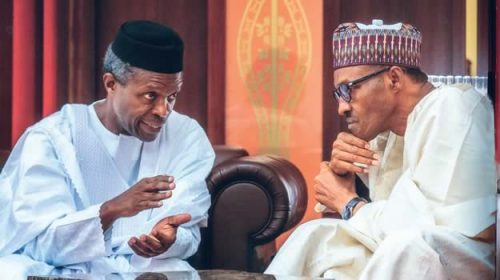Featured
Buhari battles to redeem worsening image over irredentist policies
Published
7 years agoon
By
Olu Emmanuel
President Muhammadu Buhari has been having a herculean task battling with devastating primordial inclination, hypothetically, imposed on him by his own kinsmen in over the past four years of the All Progressives Congress (APC) government in Nigeria.National Daily inquiry revealed that the president’s mild responses to the lawlessness and violent onslaught by herdsmen across Nigeria, a trade or occupation Nigerians believe is dominated by the Fulani, the president’s ethnic nationality, have been generating skepticism, mutual suspicion and distrust of an agenda of Fulani goe-politics – cultural expansionism and occupation of new territories – across the country. The skepticism has led to outbursts from renowned elder statesmen, who include former President Olusegun Obasanjo, Professor Wole Souinka, and others alleging the Fulanisation, islamisation of the country in the Buhari administration. Some other statesmen, who include Chief Ayo Adebanjo, also expressed disquiet over alleged enthronement of Fulani imperialism and domination of Nigeria.
The idea of cattle ranching outside the northern states have always generated the fear of Fulani ‘imperialism’ as Chief Adebanjo said; or fear of fulanisation and domination as articulated by Dr. Obasanjo. To the sociologists, these fears are germane because a territory permanently occupied by a population of 50 to 100 persons, for instance, has the tendency in 10 to 20 years to be under pressure of expansion to accommodate the growing population from within, in addition to new migrants that would have culminated in risen of over 350,000 inhabitants. Then, those communities face the risk of being thrown into another era of wars and violent uprisings, the problem the government thought it is solving with such policy would be worse. By then, the current generation, including President Buhari and the officers in the political machine of the presidency, would have exited the world.
Some stakeholders who spoke to National Daily on condition of anonymity were of the view that the president would need to listen to opposition voices, widen consultations on the solutions to the herdsmen crisis, noting that the conflicts have gone beyond the theoretical herdsmen/farmers clash. They observed that the more the president attempts to counter the voices or arguments of those outside his administration or the government of the day, the more he faces the risk of incremental unpopularity which could worsen as the crisis accelerates.
The stakeholders argued that the worst hatred or unpatriotic action a group would express towards any of its members is to be in the vanguard of violent activities that would destabilize the government led by the member of the group. They counseled President Buhari to look inward in solving the herdsmen conflicts, noting that Nigerians are not fighting them but they are fighting Nigerians.
From the initial proposal of the controversial ‘cattle colony’ to the ‘Ruga Settlement’ policy, numerous stakeholders in the Nigerian project have expressed the views that the President appears to be proving the fears, distrusts and mutual suspicions of a covert or overt implementation of irredentist policies to the advantage of his Fulani race, while as the US observed, creating scenario that would force many non-Fulani and non-Muslim Nigerians into mass migration from their fatherland. This compendium has been the source of reactions and counter-tractions to the RUGA proposal from several parts of Nigeria.
Meanwhile, President Buhari has shown discomfort with the oppositions views on the “RUGA Settlement” policy, leading to the Senior Special Assistant to the President on
Media and Publicity, Mallam Garba Shehu, returning attack to the critics and protesters, then, attempting to explain the policy thrust.
Garba Shehu in a statement in Abuja on Sunday, accessed byNational Daily, drew attention to what he considered recent unhelpful comments regarding the plan to stop roaming of cattle herders with the attendant clashes with farmers.
The SSA explained that “Ruga Settlement” that seeks to settle migrant pastoral families simply means rural settlement in which animal farmers, not just cattle herders, will be settled in an organized place with provision of necessary and adequate basic amenities such as schools, hospitals, road networks, vet clinics, markets and manufacturing entities that will process and add value to meats and animal products.
“Beneficiaries will include all persons in animal husbandry, not only Fulani herders,” he declared.
There are indications that Garba Shehu does not realize that apart from cattle, others are grazed as domestic animals within human settlements or owners residents. Chicken that is grown in commercial quantity and producing eggs in large quantities are concentrated in poultries.
The SSA to the president, however, maintained that the Federal Government is planning this in order to curb open grazing of animals that continue to pose security threats to farmers and herders.
Garba Shehu listed the overall benefit to the country to include a drastic reduction in conflicts between herders and farmers, a boost in animal protection complete with a value chain that will increase the quality and hygiene of livestock in terms of beef and milk production, increased quality of feeding and access to animal care and private sector participation in commercial pasture production by way of investments.
Other gains, he said, are job creation, access to credit facilities, security for pastoral families and curtailment of cattle rustling.
“Stripped of the politics and howling that has attended the recent comments, there is no government plan to seize state land, colonize territory or impose Ruga on any part of the federation. Government has made it clear time and again that the programme is voluntary.
“So far, 12 states have applied to the Federal Ministry of Agriculture, making lands available for the take-off of the scheme in their states. This number is sufficient for the pilot scheme, Garba Shehu declared.
He remarked: “unfortunately, some state governments that have not signified interest in the scheme and, therefore, are not on the invitation list have been misleading people that the Federal Government is embarking on a scheme to take away their lands.
“Mostly, these are state leaders that have no explanation to offer their people for continued non-payment of workers’ salaries.”
The Senior Special Adviser to the President, ironically, admitted that “it is true that government at the centre has gazetted lands in all states of the federation;” noting: “but because the idea is not to force this programme on anyone, the government has limited the take-off to the dozen states with valid requests.”
Unknown to the SSA to the President, the admission that the federal government has gazzetted land in all the states of the federation validates the fears, suspicions and protests of those state governments he acknowledged have been complaining about the scheme, even without indicating interest.
Further inquiry byNational Dailyrevealed that land mass has been one major geographical advantage the north often claim to have over the south in the Nigerian political system. It has been used to claim higher population figures, more states and local governments, at a time claim more revenue allocation from the Federation Account; including distribution of more polling units in Nigeria’s elections, as well as more representatives in the National Assembly. Yet, the land mass that gave the northern Nigeria all these political and financial advantages in Nigeria’s government and politics have become too small to contain the herdsmen in the north.
Stakeholders of goodwill in the Nigerian project have, therefore, argued that, “it would appear that the President and his men would need to make more explanations to convince Nigerians of the genuine intension of the herdsmen policy.”
However, Garba Shehu in the statement declared: “We urge states to join the Federal Government at the centre in encouraging all sides to these conflicts to make efforts towards finding a peaceful resolution.
“As we seek a permanent solution to these unwanted conflicts, efforts must be made to ensure that no innocent person faces any kind of deprivation or loss of right and freedom under our laws.”
You may like


Buhari approves new salary scale for teachers, increases service years


APC in power to dupe Nigerians, says Cleric


Obaseki reports Oshiomhole to Buhari, complains of lawlessness


PDP challenges Buhari on N10bn largess, demands probe of Gov Bello over N700bn


Update: Buhari silent as pressure mounts on Osinbajo to resign


Update on executive powers in presidency: Buhari fires Osinbajo, dissolves Economic Management Team
Trending

 Entertainment5 days ago
Entertainment5 days agoSimi addresses resurfaced 2012 tweets amid online backlash

 Health1 week ago
Health1 week agoSCFN, LUTH introduce bone marrow transplants as curative treatment for sickle cell

 Health4 days ago
Health4 days agoDeclassified CIA memo explored concealing mind-control drugs in vaccines

 Football1 week ago
Football1 week agoHarry Kane nets brace as Bayern edge Frankfurt 3–2 to go nine points clear

 Football1 week ago
Football1 week agoLate Flemming header stuns Chelsea as Burnley snatch 1–1 draw at Stamford Bridge

 Crime4 days ago
Crime4 days agoSenior police officers faces retirement after Disu’s appointment as acting IGP

 Crime1 week ago
Crime1 week agoTwo killed, seven injured in early-morning shooting in Richmond’s Shockoe Bottom

 Education6 days ago
Education6 days agoPeter Obi urges JAMB to address registration challenges ahead of exams

